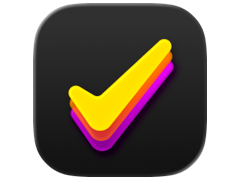By John Gruber

Finalist for iOS: A love letter to paper planners
How Ping Might Grow
Tuesday, 7 September 2010
It’s interesting how much more polished the Ping UI is on iPhone than on the desktop—a testimony to where Apple thinks the money is. Whether you’re standing in line, sitting in an airport, or on the bus, Ping will help you find music with more confidence, and in less time, than ever. The desktop UI, by contrast, looks horribly rushed, and not nearly up to Apple’s usual standards for a demo, let alone a shipped product.
Agreed. Ping on the iPhone feels like a decent native client to a social network. Ping on the desktop (Mac/Windows) feels like an afterthought to iTunes — one little source list item halfway down the list, with content that doesn’t seem designed at all. Not that it’s poorly designed, but un-designed. It takes the shape of default iTunes Store content.
Drance also notes:
I’m already buying more music. I shudder to think what will happen once we have Ping for books and apps.
Ping for music is interesting, but I, for one, would be more interested in Ping for apps. But don’t forget movies, TV shows, and podcasts, too. Why aren’t these things part of Ping? I suspect it’s simply that they’re not part of Ping yet. Start with one thing and expand from there — that’s how Apple rolls.
One distinction worth noting: on the Mac and Windows, everything related to iTunes is glommed into one monolithic “iTunes” app — much to the consternation of those of us who prefer simple, focused apps. On iOS, on the other hand, there are discrete apps for:
- audio playback (“iPod” on iPhone and iPad, “Music” on iPod Touch)
- video playback (“Video”, although on the iPhone, video is part of “iPod”)
- purchasing music and video iTunes Store content (“iTunes”)
- apps (“App Store”)
- e-books (“iBooks”)
I know many people are hoping that some year, rather than roll out another major release of the existing monolithic desktop iTunes app, Apple will start over and release a brand-new iTunes for Mac and Windows, re-written from scratch. I don’t know if that’s ever going to happen. Re-writes are hard and time-consuming. I think what’s more likely would be for Apple to break iTunes for the desktop apart into separate individual apps — perhaps one for playback, one for the Store, a desktop iBooks client, and a separate app for managing iOS device syncing. As things stand today, does it make sense for the entire iTunes Store to occupy the same amount of space — one small item in the iTunes source list — as, say, a single music playlist?
But Ping for the iPhone goes in the other direction — rather than a separate “Ping” app, it’s a tab inside the existing “iTunes” app. At first I was surprised by this — as noted above, I think the multiple-app approach has served iOS well. But, clearly, Apple created Ping to drive the sale of additional music — and I think that’s why Ping isn’t a standalone app — if it were, then clicking a “Buy” link in Ping would take you from the (hypothetical) Ping app to the iTunes app. Then you’d have to remember to switch back to Ping to get back to where you were. Even with iOS 4 multitasking, switching between apps is nowhere near as smooth as buying a song from within Ping’s activity list.
But, if Ping resides within the iOS iTunes app, how would it grow to encompass non-music content like apps, books, and movies? Some of us may not like it, but at least it makes sense on the Mac and Windows that everything iTunes-related is within a single monolithic app. But it wouldn’t make any sense at all for a future version of Ping that includes books and apps to reside within an iOS “iTunes” app that only lets you buy music and videos.
One idea: Apple could add a “Ping” tab to each of the store-related iOS apps — iTunes, iBooks, and App Store. Another idea: Apple could break Ping out into its own standalone app, and allow this app to make purchases of any sort of iTunes Store content. I like the second idea much better, at a glance. But perhaps it’d make sense to have dedicated Ping tabs in each app — you might want to follow different people for music recommendations than apps and books.
One way or another, though, if Ping proves popular, it shouldn’t remain focused solely on music.
